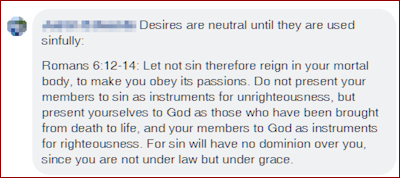by Phil Johnson
Do you not know that friendship with the world is enmity with God? Therefore whoever wishes to be a friend of the world makes himself an enemy of God.—James 4:4

 cripture forbids believers to imbibe the world's values (cf. 1 John 2:6; Romans 8:5-6; Matthew 6:19-21) or set their affections on things of the earth rather than on heavenly things (cf. Colossians 3:2; 1 John 2:15; Matthew 16:23). Christians do not belong to this world. We are not beholden to the world. We cannot legitimately court the world's admiration or approval. And it is wrong to think otherwise. Jesus told His disciples, "If you were of the world, the world would love you as its own; but because you are not of the world, but I chose you out of the world, therefore the world hates you" (John 15:9).
cripture forbids believers to imbibe the world's values (cf. 1 John 2:6; Romans 8:5-6; Matthew 6:19-21) or set their affections on things of the earth rather than on heavenly things (cf. Colossians 3:2; 1 John 2:15; Matthew 16:23). Christians do not belong to this world. We are not beholden to the world. We cannot legitimately court the world's admiration or approval. And it is wrong to think otherwise. Jesus told His disciples, "If you were of the world, the world would love you as its own; but because you are not of the world, but I chose you out of the world, therefore the world hates you" (John 15:9).That truth is ignored or rejected by multitudes of 21st-century evangelical Christians who wrongly believe that if the church does not first win the world's friendship and admiration, we have no hope of reaching anyone for Christ. Some of today's largest and most influential churches even take surveys to find out the desires and ambitions of unbelievers in their communities. Then they plan their Sunday services accordingly, putting on a performance that caters to what people say they desire.
Popular televangelists follow a cruder version of the same strategy, promising people health, prosperity, and riches in return for money. They are today's equivalent of the medieval indulgence-sellers. These religious charlatans make their appeal blatantly and directly to "the lust of the flesh, the lust of the eyes, and the pride of life"—the same carnal cravings that 1 John 2:16 says are "not of the Father but . . . of the world."
Churches are full of people who are sinfully obsessed with the whims and entertainments of this world. They are desperate to keep up with various worldly fads and secular celebrities. They wrongly believe that if they embrace the icons of pop culture, the world will also embrace them and therefore be more open to Christ. So they wear the badges of worldly fashions; they echo the key elements of worldly wisdom; and they immerse themselves in worldly amusements. They cultivate an unhealthy appetite for attention, popularity, and worldly approval, convincing themselves that this is a valid evangelistic strategy.
Even in the highest echelons of evangelical academia certain scholars seem driven by an unhealthy yearning for academic renown. They become so desperate to win the admiration of their counterparts in the secular academy that they willingly compromise the truth and sometimes even apostatize completely.
The wish to be noticed and admired by other people is itself a carnal, illegitimate lust. Jesus condemned the Pharisees because, "They [did] all their deeds to be seen by others" (Matthew 23:5). They made a show of public piety to give the impression they were holier than anyone else.
Like the Pharisees, today's stylish evangelicals fancy the praise and recognition of other people. But unlike the Pharisees, most of them want to be noticed for being hip, not holy.
 It dishonors Christ when Christians try to fit into the fraternity of those who hate Him. Scripture is very clear about this: "Friendship with the world is enmity with God."
It dishonors Christ when Christians try to fit into the fraternity of those who hate Him. Scripture is very clear about this: "Friendship with the world is enmity with God."According to Jesus, the only business the Holy Spirit has with the world outside the church is to "convict [unbelievers] concerning sin and righteousness and judgment" (John 16:8). Those are precisely the themes that are typically omitted when churches become too interested in winning the world's approval.
The church must get back to preaching the gospel, remembering that the message of the cross, when faithfully preached, is by God's own design "a stumbling block to Jews and folly to Gentiles, but to those who are called, both Jews and Greeks, Christ the power of God and the wisdom of God" (1 Corinthians 1:23-24). The gospel alone is "is the power of God for salvation to everyone who believes" (Romans 1:16). Christians should not be ashamed to proclaim it.
It's true that if we are faithful, many in the world will view us with contempt as enemies—and we must be prepared for that. "Do not be surprised, brothers, that the world hates you" (1 John 3:13). The world put Christ to death, and He said, "A servant is not greater than his master.' If they persecuted me, they will also persecute you" (John 15:20).
Furthermore, our Lord Himself didn't shy away in shame or retaliate in anger. Indeed, "to this you have been called, because Christ also suffered for you, leaving you an example, so that you might follow in his steps. . . . When he was reviled, he did not revile in return; when he suffered, he did not threaten, but continued entrusting himself to him who judges justly" (1 Peter 2:21-23).

From 95 Theses for a New Reformation: For the Church on the 500th Anniversary of the Reformation, edited by Aaron B. Hebbard (Eugene, OR: Wipf & Stock, 2017), 144-45.


 egarding the previous post, let me underscore my answer to an objection that keeps coming up. One of my critics on Twitter stated it as succinctly as anyone. He wrote, "Attraction and lust aren't the same thing. [Therefore] your proposition collapses entirely."
egarding the previous post, let me underscore my answer to an objection that keeps coming up. One of my critics on Twitter stated it as succinctly as anyone. He wrote, "Attraction and lust aren't the same thing. [Therefore] your proposition collapses entirely."

 ull disclosure: Here is the development that finally provoked my sense of consecrated indignation enough to motivate me to start blogging again:
ull disclosure: Here is the development that finally provoked my sense of consecrated indignation enough to motivate me to start blogging again:

 Yes, all of us struggle with evil desires. That's part of our fallenness. Even Paul struggled with covetousness—evil desire (Romans 7:7-25). But Paul's whole point was that those desires (even if never acted on) are sins to be mortified, not prize ribbons to be worn as badges of one's identity.
Yes, all of us struggle with evil desires. That's part of our fallenness. Even Paul struggled with covetousness—evil desire (Romans 7:7-25). But Paul's whole point was that those desires (even if never acted on) are sins to be mortified, not prize ribbons to be worn as badges of one's identity.
 he issue underlying practically every popular evangelical trend we have ever decried here on
he issue underlying practically every popular evangelical trend we have ever decried here on  Christians are expressly forbidden to embrace the world's values or seek its approval: "Do not love the world or the things in the world. If anyone loves the world, the love of the Father is not in him. For all that is in the world--the desires of the flesh and the desires of the eyes and pride in possessions--is not from the Father but is from the world. And the world is passing away along with its desires, but whoever does the will of God abides forever" (1 John 2:15-17).
Christians are expressly forbidden to embrace the world's values or seek its approval: "Do not love the world or the things in the world. If anyone loves the world, the love of the Father is not in him. For all that is in the world--the desires of the flesh and the desires of the eyes and pride in possessions--is not from the Father but is from the world. And the world is passing away along with its desires, but whoever does the will of God abides forever" (1 John 2:15-17). The notion that we must win the world's esteem before the gospel can do its work is, I'm convinced, a spiritually crippling error. But it's also the presupposition underlying most of the trends currently vying for widespread acceptance within the so-called evangelical movement. In reality, for three decades or longer the broad movement has been softening its commitment to (and in many cases totally abandoning) the two most important evangelical convictions—sola Scriptura and sola fide. Those cardinal biblical doctrines are now being replaced by secular dogmas: "wokeness," "social justice" (a liberal counterfeit, not biblical justice), critical race theory, gender fluidity, and an ever-increasing number of ideologies bred and popularized in secular academic circles.
The notion that we must win the world's esteem before the gospel can do its work is, I'm convinced, a spiritually crippling error. But it's also the presupposition underlying most of the trends currently vying for widespread acceptance within the so-called evangelical movement. In reality, for three decades or longer the broad movement has been softening its commitment to (and in many cases totally abandoning) the two most important evangelical convictions—sola Scriptura and sola fide. Those cardinal biblical doctrines are now being replaced by secular dogmas: "wokeness," "social justice" (a liberal counterfeit, not biblical justice), critical race theory, gender fluidity, and an ever-increasing number of ideologies bred and popularized in secular academic circles.
 t's been more than six years since I retired from the blogosphere. For half a decade, whenever someone would ask if I missed blogging, my honest answer was, "Not at all. Never even once." There wasn't a single moment in all those years when I thought, I wish I were still blogging so I could write something more than a Tweet about this issue. In my seven years of blogging, I had posted on practically every issue I really cared about. I ran out of opinions.
t's been more than six years since I retired from the blogosphere. For half a decade, whenever someone would ask if I missed blogging, my honest answer was, "Not at all. Never even once." There wasn't a single moment in all those years when I thought, I wish I were still blogging so I could write something more than a Tweet about this issue. In my seven years of blogging, I had posted on practically every issue I really cared about. I ran out of opinions. I had tried posting some opinions in the comments sections of a couple of popular blogs, but they made it clear they were not interested in dissenting views. One famous blog closed their comments completely when I tried joining their discussion. So
I had tried posting some opinions in the comments sections of a couple of popular blogs, but they made it clear they were not interested in dissenting views. One famous blog closed their comments completely when I tried joining their discussion. So 

 I suddenly have the itch to write about some of these things. Not every day, of course, but from time to time—perhaps weekly or so. Dan Phillips is now blogging to a bigger audience
I suddenly have the itch to write about some of these things. Not every day, of course, but from time to time—perhaps weekly or so. Dan Phillips is now blogging to a bigger audience 
 've been
've been  Also, full disclosure: I have a son who is a police officer who currently works nights in one of the most dangerous precincts of Los Angeles. My concerns about Thabiti's mission drift are undoubtedly magnified by my conviction that some of the rhetoric peppering his Twitter feed over the past two years aids and encourages a movement whose influence has put my son's life at significantly greater risk. Based on how the media, millennials, and most Internet forums have handled the issues of racism and police work, it seems fair to assume that the sector of society where my son must live and work is far more openly hostile to cops than to young black men, and Thabiti's post-Ferguson rhetoric hasn't helped. Thabiti and friends are not going to diminish the very real problem of racism or remedy the cancer of corrupt or criminal cops by portraying law enforcement itself as an evil institution and automatically assuming every police shooting is unjust. If anything, such rhetoric has widened a wedge in the church that (by Thabiti's own admission) should not be there at all.
Also, full disclosure: I have a son who is a police officer who currently works nights in one of the most dangerous precincts of Los Angeles. My concerns about Thabiti's mission drift are undoubtedly magnified by my conviction that some of the rhetoric peppering his Twitter feed over the past two years aids and encourages a movement whose influence has put my son's life at significantly greater risk. Based on how the media, millennials, and most Internet forums have handled the issues of racism and police work, it seems fair to assume that the sector of society where my son must live and work is far more openly hostile to cops than to young black men, and Thabiti's post-Ferguson rhetoric hasn't helped. Thabiti and friends are not going to diminish the very real problem of racism or remedy the cancer of corrupt or criminal cops by portraying law enforcement itself as an evil institution and automatically assuming every police shooting is unjust. If anything, such rhetoric has widened a wedge in the church that (by Thabiti's own admission) should not be there at all.

 that the worst sin against blacks in America isn't racism per se, but the murders of countless unarmed black babies. Statistics suggest that
that the worst sin against blacks in America isn't racism per se, but the murders of countless unarmed black babies. Statistics suggest that 

























